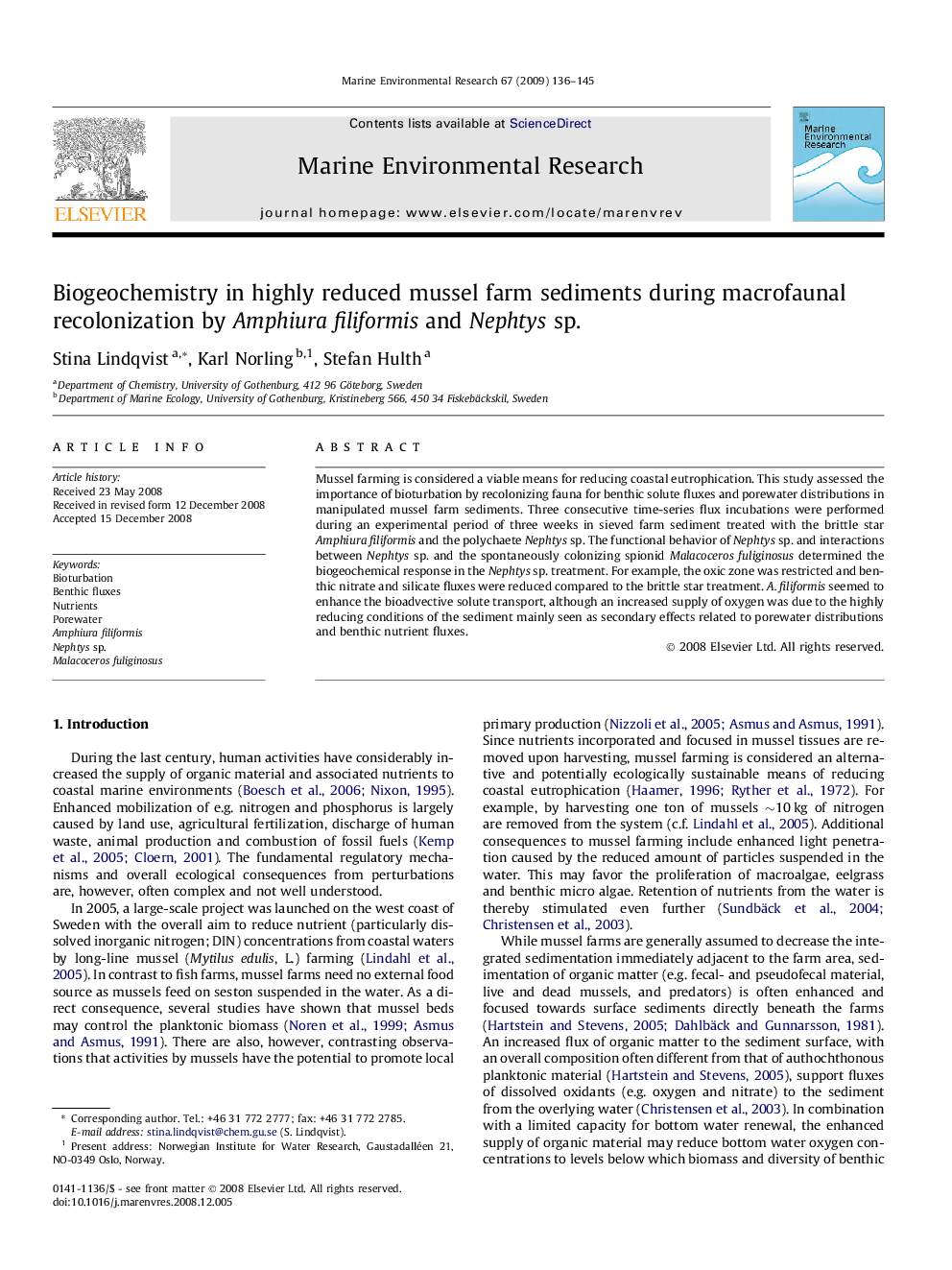| Article ID | Journal | Published Year | Pages | File Type |
|---|---|---|---|---|
| 4551484 | Marine Environmental Research | 2009 | 10 Pages |
Mussel farming is considered a viable means for reducing coastal eutrophication. This study assessed the importance of bioturbation by recolonizing fauna for benthic solute fluxes and porewater distributions in manipulated mussel farm sediments. Three consecutive time-series flux incubations were performed during an experimental period of three weeks in sieved farm sediment treated with the brittle star Amphiura filiformis and the polychaete Nephtys sp. The functional behavior of Nephtys sp. and interactions between Nephtys sp. and the spontaneously colonizing spionid Malacoceros fuliginosus determined the biogeochemical response in the Nephtys sp. treatment. For example, the oxic zone was restricted and benthic nitrate and silicate fluxes were reduced compared to the brittle star treatment. A. filiformis seemed to enhance the bioadvective solute transport, although an increased supply of oxygen was due to the highly reducing conditions of the sediment mainly seen as secondary effects related to porewater distributions and benthic nutrient fluxes.
